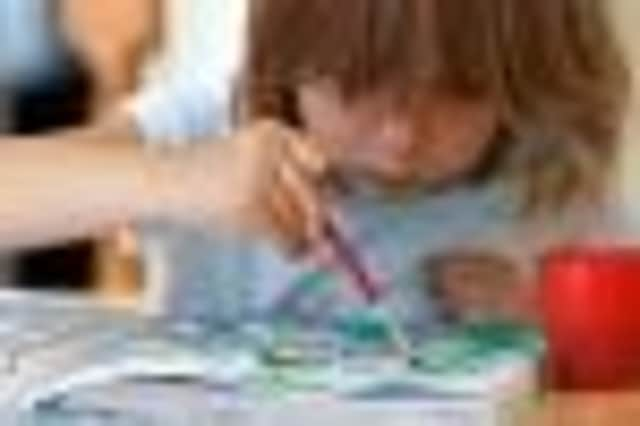A charity is supporting ‘problem’ children in Scottish schools by giving them space and time just to be


Ellie is ten. She wears make-up and walks around provocatively. She seems so much older than her years. The mothers at the school gate all shake their heads sadly. Pregnant at 14, they whisper to each other.
Paul is just five. He's withdrawn and hides under the table at school. The teacher is so busy with the other pupils she just lets him get on with it. At least he's not causing trouble, right?
Advertisement
Hide AdAdvertisement
Hide AdThe truth of the matter is that David's dad punches him when he's drunk, Ellie is being abused by her mother's boyfriend and Paul has learned there's no point in shouting or making a scene – no one ever pays any attention to him anyway. It's easy to make assumptions about children when they act up – we all do it – but a charity now working in Scottish schools aims to see beyond the truancy and the vandalism and halt the pattern before it develops into something much more serious.
Place2Be provides a room in which a child can play, talk and just be themselves. Sometimes the counsellor will never get to the bottom of a problem, but sometimes a young life can be turned around. “We worked with a child who was around eight,” says Jonathan Wood, Scotland national manager for the charity. “He’d come from a very tricky background and was up for adoption.
“A family had been found for him who were willing to foster him, with a view to long-term adoption. It was Christmas and they had children of their own so it was very much about integrating this boy into the family. They had worked very hard at making sure everyone got equal presents, but the child kicked off and couldn’t cope with it. Because, I suppose, it brought back all the Christmases that had never happened; all the things he had never got. He came back to school, school was going downhill very fast and he was on the edge of being excluded.”
Place2Be was brought in to work with the child, his foster parents and the teachers who had long since stopped being able to handle him. In the end, the adoption went ahead and the boy is attending school. “He’s OK,” says Wood. “He still has problems but he survived that transition and he has a family. If there had been no intervention, the parents could have said, ‘We can’t do this,’ the school could have excluded him ... that child has already been rejected in the worst way possible so we’re just adding to that if we don’t put a stop to it somehow.”
There are ten primary schools in Edinburgh, six in East Lothian and a pilot project in Glasgow working on this early-intervention element of child counselling. The warning signs might be children who are very withdrawn, or clingy, or tearful; children who are acting up in class, their work might have suffered. “And obviously this is a prolonged difference, not just having a bad week,” says Gayle Taylor, a counsellor with Place2Be.
The child then attends a 50-minute session once a week for the full school year. “There are a lot of questions in people’s minds,” admits Wood. “Should you have such a service in primary schools? Surely the parents should be able to support their own children? We’re in areas where a lot of parents would like to support their children but, because of persistent issues they’re facing, they don’t. But even in quite middle-class areas you can get kids neglected and kids forgotten about.”
“Basically, the name Place2Be comes from the fact that this room is a place where the child can just come and be,” adds Taylor. “Children will often not tell you something. They'll do it through the metaphor of their play. They might just come in and express their emotions – sometimes it’s aggression or frustration or they'll tell a story with some of the animal characters in the sandpit, or they'll draw something that's quite dark. You're then able to help them process what's going on for them that they're not able to verbalise.”
The needs vary widely, from parents splitting up to bereavement to bullying to abuse. “For these children to get one-to-one attention from an adult who's not a parent, who's not a teacher, someone who is just going to give them a space to work through some of their emotions – that's essentially the value of it,” says Taylor. “Often society will look at bad behaviour and, on a surface level, that's what you see. What Place2Be does is look beyond that behaviour.”
Advertisement
Hide AdAdvertisement
Hide AdBut, for her, the deepest concern is not those pupils who lash out, who kick and shout and give teachers what is euphemistically termed ‘challenging’ behaviour. “What we might want to worry about more are the children who are so quiet that they slip under the radar. They're so detached, they have actually learned there's no point in kicking or shouting because nobody pays any attention.”